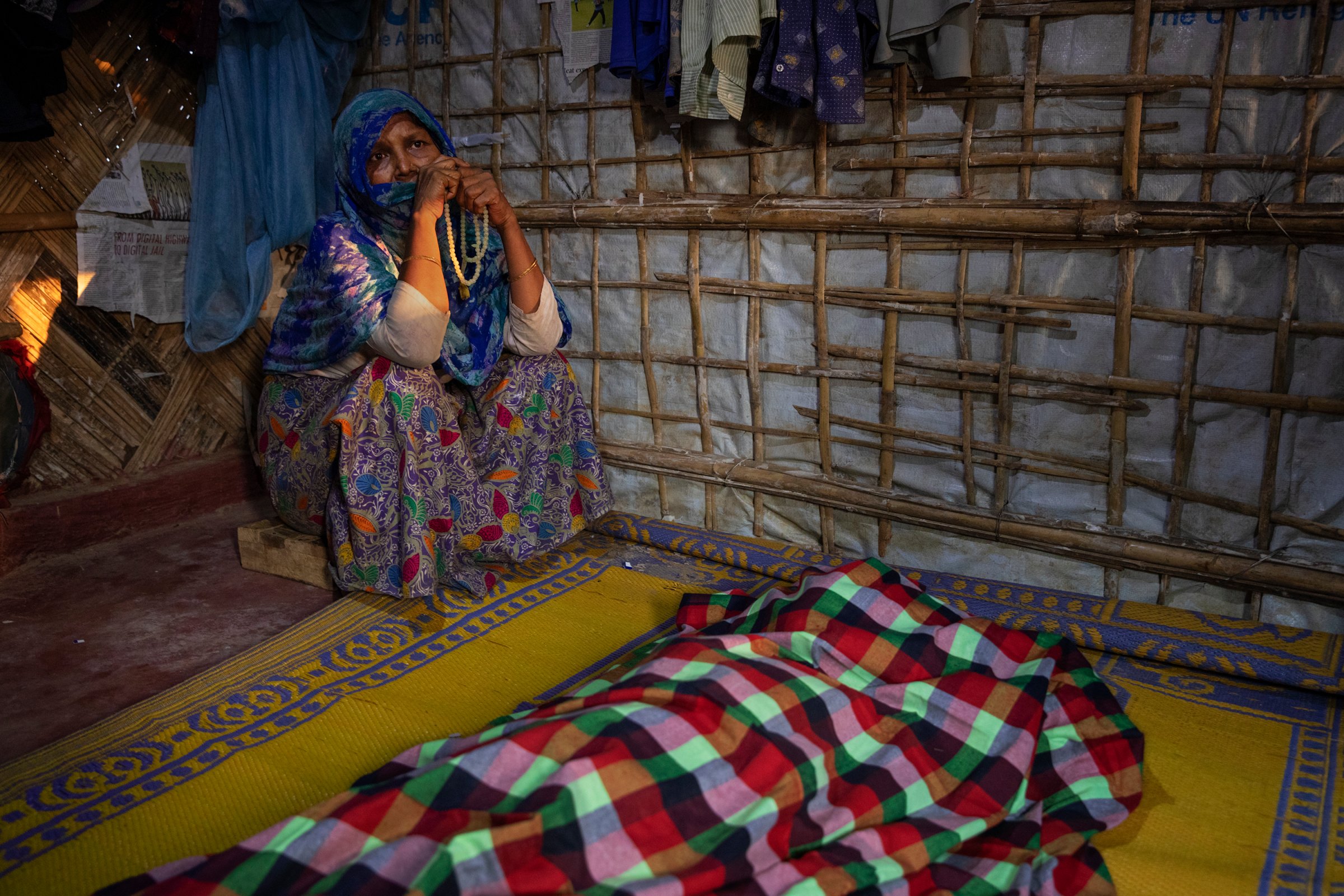
It was exactly two years ago today, on August 25 2017, that the Myanmar military launched a murderous “clearance operation” in Rakhine State. In the space of a few months, the security forces and their proxies killed thousands of Rohingya people, torched villages to the ground, engaged in widespread sexual violence, and drove almost 750,000 women, men and children to flee into Bangladesh.
Among those who fled, or who saw family members killed, were my relatives and friends. For their sake, I wish we were able to reflect on some good news on this second anniversary. Unfortunately, the opposite is true — conditions for Rohingya continue to be desperate on both sides of the Naf, the river separating Bangladesh and Myanmar.
With the plight of the Rohingya fading from global headlines, international action is needed now more than ever. The very future of our community depends on it.
Two years ago, the government of Bangladesh generously opened its border to Myanmar and allowed desperate people to flee the military’s violence. Many came with little more than the clothes on their back, literally dodging bullets as they ran from the carnage in Arakan (Rakhine) State, the region in Myanmar that is my people’s ancestral homeland.
Today, almost one million Rohingya refugees live in squalid refugee camps in Cox’s Bazar, Bangladesh’s southeastern-most tip. They are dependent on aid handouts to eke out a living, while being denied the opportunity to enter the job market or to gain an education. When I speak to friends in the camps, a sense of hopelessness prevails. They see little future for themselves in Bangladesh, and no path to returning home in the near future.
Across the border in Rakhine State, Rohingya continue to live in what amounts to an open-air prison where all aspects of their lives are controlled. Decades of systematic, state-sponsored discrimination has denied Rohingya citizenship and their freedom of movement, meaning people have to apply for special permission to leave their villages, earn a living, or even to seek healthcare. Education — in particular beyond primary level — is essentially blocked to most Rohingya. Levels of poverty and malnutrition are shockingly high.
While Myanmar’s leaders have since 2017 often promised the international community to tackle such root causes, the reality is there is no political will to do so. If anything, repression has grown more severe in the past two years. This is a humiliating system deliberately imposed by the Myanmar government to dehumanize and drive people to despair — as much part of the ongoing genocide against Rohingya as the military’s brutal violence.
Since January this year, fighting in Rakhine State between the Myanmar military and the Arakan Army — an armed group belonging to the Rakhine ethnic minority — has also intensified. The military has again been accused of war crimes during the conflict, and tens of thousands of people have been driven from their homes. The government has imposed an Internet blackout on the region and restricted humanitarian access even further.
This all underlines that conditions are simply not safe for Rohingya in Rakhine State. In light of this, it is worrying that just last week, the governments of Myanmar and Bangladesh again floated the prospect of beginning the refugee repatriation process back to Rakhine State. Additionally, Myanmar still refuses to grant returning Rohingya citizenship, but instead insist they must accept a so-called National Verification Card which will cement our status as stateless. The international community must ensure that this does not happen, and that no Rohingya refugees are returned to Myanmar before they can be guaranteed a life of safety and dignity.
What must happen for this to become reality? First of all, the Myanmar authorities must dismantle the dehumanizing system of repression facing Rohingya in Rakhine State. Rohingya should be granted citizenship of our native country, and we should be allowed to travel, access services and make a living without restrictions.
Those responsible for the vicious violence against Rohingya two years ago must be held to account, to ensure that perpetrators do not feel emboldened to commit the same abuses again. Last year, a group of U.N. experts called on the Myanmar military top brass to be investigated and prosecuted for war crimes, crimes against humanity and genocide. With Myanmar refusing to investigate its own security forces, the international community must step in. Specifically, it is up to members of the U.N. Security Council to stop playing politics and immediately refer the situation in Myanmar to the International Criminal Court.
Finally, for Rohingya to truly feel safe in Rakhine State, we need an international security presence there to protect us. The violence in 2017 is not new: the Myanmar military has launched similarly brutal campaigns against the Rohingya in the past, including in 1978, when my parents were among those who fled across the border into Bangladesh. There is every chance history will repeat itself again unless our protection can be guaranteed by the international community.
As Rohingya, the only thing we want is to be able to live in safety and dignity in our homeland, without the threat of violence, or humiliating and crippling restrictions on our rights. Two years ago, the brutality of the Myanmar military thrust our plight into the global spotlight. Today, we need the world’s help to end the ongoing genocide against us more than ever.
More Must-Reads from TIME
- Cybersecurity Experts Are Sounding the Alarm on DOGE
- Meet the 2025 Women of the Year
- The Harsh Truth About Disability Inclusion
- Why Do More Young Adults Have Cancer?
- Colman Domingo Leads With Radical Love
- How to Get Better at Doing Things Alone
- Michelle Zauner Stares Down the Darkness
Contact us at letters@time.com